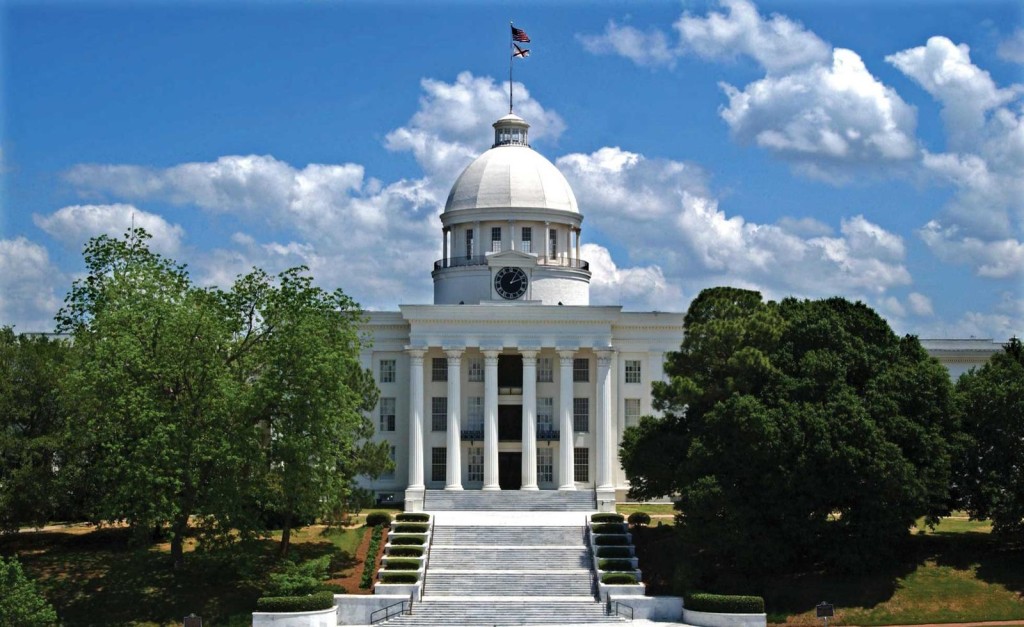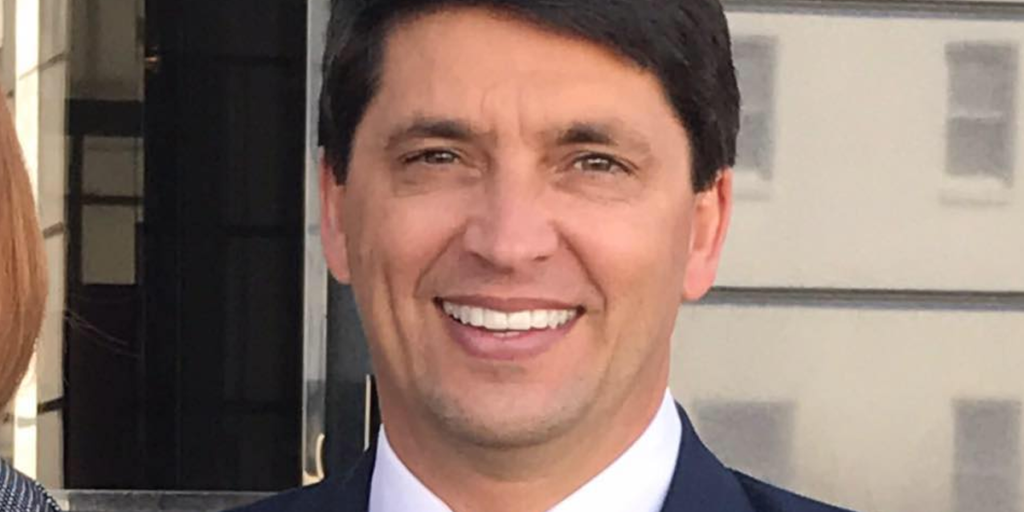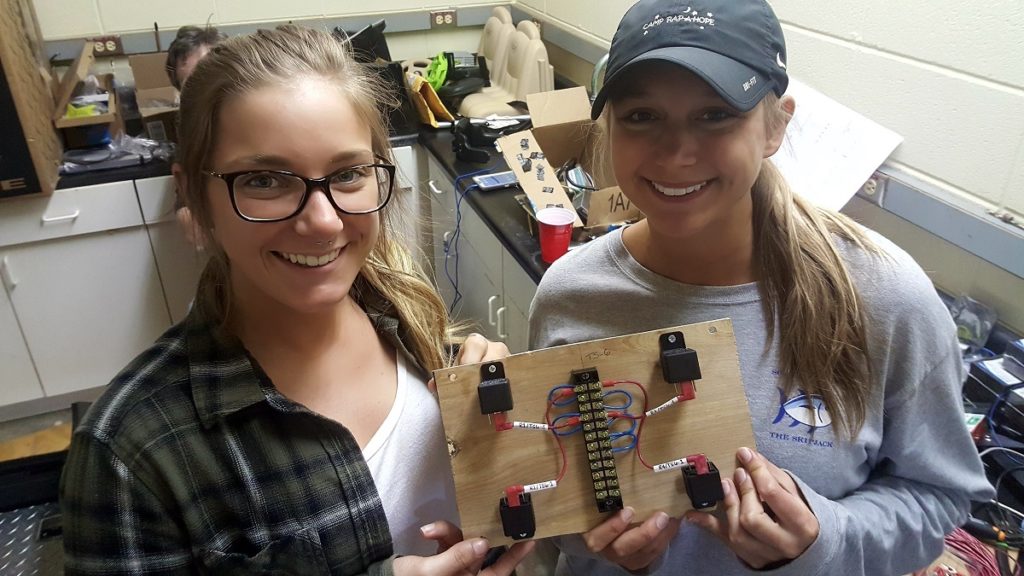Free the Grapes urges Alabama lawmakers to allow wine shipments

Alabama is one of only six states with a ban on winery-to-consumer direct shipments. But proposed legislation would, if passed, allow adult consumers in Alabama to purchase a limited amount of wine directly from wineries licensed by the state to ship. On Wednesday, the Senate Committee on Fiscal Responsibility and Economic Development is scheduled to consider SB243, sponsored by Madison-Republican State Sen. Bill Holtzclaw, the bill would allow licensed wine manufacturers to ship wine directly to Alabama consumers. As introduced, the bill would limit the amount of wine that a producer could ship to any individual at 24 cases per year, each case not exceeding nine liters of wine, and would require the purchaser be verified to be 21 years of age. Free the Grapes!, an advocacy and consumer outreach nonprofit is urging Alabamians to write the lawmakers ahead of Wednesday’s committee meeting. “The time has come for Alabamians to access the wines they want,” said Jeremy Benson, executive director of Free the Grapes!, the national movement of consumers, wineries and retailers seeking to expand consumer choice in wine with legal, regulated direct to consumer shipments. “We believe consumers should determine which wines they can enjoy and how they purchase them. Senate Bill 243 will give Alabama’s wine lovers that privilege.” “Don’t believe the scare tactics presented by opponents,” Benson continued. “No state has rescinded its direct shipping laws based on non-compliance, underage access, or loss of jobs. Senate Bill 243 is a beneficial bill for the state of Alabama and a win for consumer choice.”
Anne Marie Bonds: Juvenile justice – a broken system with harmful effects on Alabama’s youth

A fourteen year old shoplifts cologne from a local Macy’s with hopes to impress his crush. Lacking the skills of an experienced criminal, he gets caught easily. Although perhaps warranting a fine and community service, he is instead processed as a criminal defendant and placed in a juvenile detention center. Here, he crosses paths daily with violent youth offenders. While this specific situation is hypothetical, under Alabama’s current juvenile justice laws the situation is possible and likely. Any minor charged with a misdemeanor can be sent to the same centers as major juvenile offenders. Will that minor come out of the system as an upstanding member of the community or will he or she be likely to commit more violent crimes? Multiple studies find that placing non-violent youth offenders in detention centers actually increases their chances of committing a violent crime later on in life. As one Alabama youth currently in detention stated, “Basically, when you get locked up you learn how to be a better criminal.” Obviously, non-violent youth should not be grouped with violent youth offenders, but under Alabama’s current juvenile justice laws, wayward minors are prosecuted and punished with long detention sentences—away from their families for months and even years—when realistically supervision and probation may be a better option. This only creates more crime in our state, along with more state spending to house these youth offenders; one placement of a youth offender can cost the state up to $160,000 per year. If we want to decrease crime and state spending in Alabama, then we must make juvenile justice reform a priority. In 2017, the Alabama Juvenile Justice Task Force met to determine where the system needs improvement and to make recommendations. What they found was shocking. Over the past five years, there has been a 27% drop in juvenile crime. Even though juvenile crime rates have fallen, the number of youth in detention facilities has risen 6%. This means that the juvenile justice system is becoming more involved in detaining youth, even though there is no correlation between detention and lower crime rates. Not only is the juvenile system becoming more involved in youth correction, but over two thirds of youth offenders in custody are detained for low-level misdemeanors—crimes like shoplifting, fighting in school, and truancy. Instead of detaining non-violent youth, the state should implement more prevention programs and use supervision and probation more often as a punishment, instead of detention, especially for first time offenders. There is currently a bill, the Juvenile Justice Act, in the Alabama Legislature that implements many of these reforms. It acts on the problems within Alabama’s juvenile justice system, working to help wayward youth instead of treating them as if they were violent adult criminals. Fortunately, Alabama can follow the lead of other states who have successfully pursued meaningful juvenile justice reforms. For example, Texas reformed its juvenile system throughout 2007-2011 and disallowed detaining youth in detention facilities for misdemeanors. Texas’s detention rate has, in response, declined by 66%, with no increase in crime. Coincidentally, the state has saved over $179 million over 6 years. Most youth will make mistakes, which is a critical part of growing up and learning how to be an adult. With the current state of Alabama’s juvenile justice system, however, a non-violent crime by a minor offender can turn into a life-ruining mistake. Alabama legislators must support juvenile justice reforms not only because it is in the best interest of our state’s youth, but because Alabama’s future is depending on it. ••• Anne Marie Bonds is Policy Fellow at the Alabama Policy Institute (API). API is an independent, nonpartisan, nonprofit research and educational organization dedicated to strengthening free enterprise, defending limited government, and championing strong families. If you would like to speak with the author, please e-mail communications@ alabamapolicy.org or call (205) 870-9900.
Alabama legislative preview: Day 11 – Tuesday, February 13, 2018

The Legislative Session resumes Tuesday when the Alabama House of Representatives and the Alabama Senate both convene at 2:00 p.m. Here is what state legislators have on their plate Tuesday: House: Convenes Tuesday at 2:00 p.m. HB174: Public education employees, salary increase, including K-12 and certain other designated education institutions Sponsored by Tuscaloosa-Republican State Rep. Bill Poole HB175: Education budget, appropriations for the support, maintenance, and development of public education Sponsored by Tuscaloosa-Republican State Rep. Bill Poole HB176: Lyman Ward Military Academy, appropriation Sponsored by Tuscaloosa-Republican State Rep. Bill Poole HB177: Talladega College, appropriation Sponsored by Tuscaloosa-Republican State Rep. Bill Poole HB178: Tuskegee University, appropriation Sponsored by Tuscaloosa-Republican State Rep. Bill Poole HB179: Appropriations, supplemental appropriations for fiscal year ending September 30, 2018, Education Trust Fund Advancement and Technology Fund to the Department of Education and Alabama Community College System Sponsored by Tuscaloosa-Republican State Rep. Bill Poole HB180: Appropriations, supplemental appropriations for fiscal year 2018, from Education Trust Fund Sponsored by Tuscaloosa-Republican State Rep. Bill Poole HB321: Nursing facilities, supplemental privilege assessment and monthly surcharge for Medicaid extended, expiration under certain conditions, Sec. 40-26B-21 am’d. Sponsored by Ozark-Republican State Rep. Steve Clouse HB322: Hospitals, private hospital assessment and Medicaid funding program extended for fiscal year 2019, Secs. 40-26B-71, 40-26B-73, 40-26B77.1, 40-26B-79, 40-26B-80, 40-26B-81, 40-26B-82, 40-26B-84, 40-26B88 am’d. Sponsored by Ozark-Republican State Rep. Steve Clouse Senate: Convenes Tuesday at 2:00 p.m. The Alabama Senate has not yet released a proposed special order calendar. This post will be updated once one has been released.
State Sen. Slade Blackwell confuses field, withdraws from governor’s race

As quickly as he entered the gubernatorial race, Mountain Brook-Republican and State Sen. Slade Blackwell has exited it. Blackwell officially qualified to run for Governor on Friday, the last day to qualify for the Republican and Democratic parties, but then without an explanation withdrew his name on Monday. Alabama Today has confirmed his name has since been removed from the ALGOP’s list of qualified candidates for the governor’s race. First elected to office to 2010, Blackwell was originally expected to run for reelection to continue to represent Senate District 15, but filed for the gubernatorial race instead. Now, he has missed the deadline to qualify to run for reelection for his current seat. According to his January 2018 campaign finance report filing, Blackwell has a war chest of $212,049.70 cash on hand. It is unknown what he intends to do with those funds. Blackwell has not responded to Alabama Today for comment. In the Alabama State Senate, Blackwell is Chairman of the Banking and Insurance committee, Vice-Chairman of the Job Creation and Economic Development committee and serves on the Health, Confirmations, Education, Business and Labor, Finance & Taxation Education committees. He currently serves on the board for the Lakeshore Foundation, the Birmingham History Center, the Pinson Education Foundation, the Birmingham Golf Association and the Shelby Arts Council. He is also involved in several organizations throughout the state including the Alabama Republican Party, the Birmingham Business Alliance and several chambers of commerce. Blackwell also serves as a volunteer coach for several youth basketball teams. Blackwell’s exit leaves five Republican candidates vying for their party’s nomination: Gov. Kay Ivey, Huntsville Mayor Tommy Battle, evangelist Scott Dawson, Mobile-State Sen. Bill Hightower and Michael McAllister. The Republican primary is scheduled for June 5.
Troy King qualifies for Alabama attorney general race

Thursday, former Alabama Attorney General Troy King officially qualified as a Republican for the office of Alabama attorney general. King returned to his home of Elba, Ala. where he signed his qualifying papers to run for his old office during a ceremony at the National Security Group Conference Center. “Elba is where it all started and it was fitting to go back to the place it all began to kick off my campaign,” King posted on Facebook. King was first appointed attorney general in 2004 by former Gov. Bob Riley, after William Pryor left the office to accept federal judge position with the Eleventh Circuit Court of Appeals. King later won his own term, but lost a GOP primary race to Luther Strange in 2010. He served in the position from 2004 to 2010. King will face current state AG Steve Marshall, former U.S. Attorney Alice Martin and Birmingham attorney Chess Bedsole in the June 5 GOP primary. The winner of that race will go on to face Democrat, Birmingham attorney Chris Christie, in the Nov. 6 general election. Watch King’s announcement video below:
Alabama gives Donald Trump his highest approval rating

A little over year after taking office, President Donald Trump national approval rating on the rise — up four percentage points since October. According to a Morning Consult survey released Tuesday, Trump now has a 44 percent approval and a 51 percent disapproval rating. Which isn’t saying a lot, but perhaps his attempt to turn a corner from the divisiveness of his first year in office is paying off in his approval numbers. While some states continue to be skeptical of the President’s policies, one place where Trump’s popularity continues to hold strong: Alabama. In the Heart of Dixie, the Commander in Chief maintains a +29 percent net approval rating, the highest of all states. In fact, in Alabama, his approval has gone up one percentage point, from 62 percent to 63 percent, from January 2018 to January 2018. The survey was based on 802,543 interviews of registered voters across each state and Washington, D.C., from Oct. 1, 2017 to Jan. 29, 2018. In each poll, Americans indicated whether they approve or disapprove of the job performance of Trump. For each question, they could answer strongly approve, somewhat approve, somewhat disapprove, strongly disapprove, or don’t know / no opinion. The results use a statistical technique called multilevel regression and poststratification (MRP) to estimate state-level public opinion from the national survey data.
South Alabama students turn toy vehicle into learning tool for children with disabilities

It started out as a senior project, and it ended up helping change lives. Every fall semester, senior engineering students at the University of South Alabama receive a list of group projects to consider for their Senior Design Capstone Project. “Students by this time have learned theory and ‘how-to,’” said Dr. David Nelson, professor and chair of mechanical engineering. “Now, they have to design it. In doing so, they can make a difference in someone’s life. It’s a great teaching tool.” For the 2016-2017 academic year, one of the chosen projects was undertaken with input from Hargrove Engineers and Constructors in Mobile. A Hargrove employee had learned of a handicapped child who needed a powered wheelchair and, through the Hargrove Adaptive Toy – or HAT – Project, contacted USA. The HAT Project, which was launched in 2016, takes off-the-shelf toy vehicles and modifies them for children with disabilities to practice with as they prepare to possibly use a powered wheelchair. “There are a number of children with disabilities who could benefit from a powered wheelchair, but a client must show they have the dexterity to operate it,” Nelson said. “Kids who’ve never used one are unlikely to pass the test to get one, so we wanted to provide a platform for them to practice.” “Reaching out to the USA College of Engineering was a natural fit,” said Michelle Jones, instrument engineer at Hargrove and executive director and project manager for HarGIVES, the company’s volunteer organization that sponsors the HAT Project. A College of Engineering graduate, Jones noted that Hargrove employs more than 100 South Alabama graduates. One of its more recent hires is Kent Bailey, a mechanical/piping engineer who graduated from USA last year after working on the HAT Project. The capstone project team included USA students from both mechanical and electrical engineering. “There were two challenges that really stood out,” Bailey said. “First, we, as mechanicals, had to have a basic knowledge of how the controls on the car worked, and that was a completely different language for us, so following what the electrical team was doing was difficult at times. “We also had challenges with scheduling,” Bailey continued. “With the electrical team having a different class schedule than us, we ran into an issue with when we could all get together. Building the car after we got the design finalized caused scheduling challenges as well, since the design was and still is evolving to adapt to different children. There were several instances when the mechanicals would have something in place and it would have to be modified to accommodate an update from the electricals.” Dr. Samuel Russ, associate professor of electrical engineering, underscored how valuable this type of collaborative effort is for future engineers. “The most important lesson the electrical engineers had to learn was that the work they did, such as selecting connectors and designing wiring, directly affected the mechanical engineers. So they had to learn to stop and ask, and they had to learn to respect the work of other engineering disciplines well enough to ask for their input. That sounds easy, but it is surprisingly hard to get engineers to do that.” Overcoming the challenges, the USA team successfully delivered its modified toy vehicle to Hargrove. “USA’s student team improved upon our original design and we used their changes to build eight cars last year,” said Hargrove’s Jones. “What sets many graduating seniors apart is experience – experience and passion,” Jones continued. “The HAT Project partnership gives real-world project exposure to these students that can make their resume stand out as well as give them a project to showcase in the interview process. That experience is invaluable. Retrofitting these toy cars for children with special needs is no easy task – it takes hard work, and hard work and the student’s dedication builds character. Many times, it is your character that helps students land good jobs – not just your skills.” For former students such as Bailey, it goes even deeper than practical experience and an edge in a competitive job market. “The personal satisfaction of having a finished deliverable was something the team always talked about and was motivation to make sure we provided the best product possible,” Bailey said. “It didn’t really sink in until I walked into the courtyard here at Hargrove one afternoon and saw a young lady driving the car that we built. There are not words to describe the excitement, not only on her face, but on her parents’ faces, too. Seeing that made every early morning and long night that we put into that car worth it, many times over.” According to Jones, through the volunteerism of South Alabama students, the HAT Project has been able to give eight specially designed cars to local children and physical therapy offices in the community. USA students who worked on the HAT Project are: in mechanical engineering, Kent Bailey, Kayla Bray, Ben Breland, Julius Pugh and Heather Turner; and, in electrical engineering, Victoria Antell, Emaleigh Sargent, Heath Skelton and Joe Wachob. Republished with permission from the Alabama NewsCenter.
Gulf Shores to provide $1 million grant for local zoo

The long awaited relocation of the Alabama Gulf Coast Zoo is one step closer to becoming a reality thanks to a $1 million grant from the Gulf Shores City Council. Gulf Shores City Councilman and chairman of the zoo foundation board, Steve Jones, said the board has been exploring relocating the zoo for years, the $1 million grant will be used to secure financing for a 25-acre site just North of the Intercostal Waterway in Gulf Shores. “We’re excited because as difficult as it’s been, we’re finally going to realize this mission and this dream of actually getting this project started and finished once and for all,” Jones told Lagniappe. “Call it a two-year process but now we’re down to the final 30 days, hopefully getting fully funded and beginning the project and get the project built from start to finish and open it in less than two years.” The rest of the financing is being made possible by a $26.3 million bond issue. These funds will be used for a refinance on the existing zoo debt, construct the new zoo facility, and buy 71-acres of land next to the new zoo site. “The bonds are actually going to be sold on the open market,” said Jones. “They have a lot of stipulations, regulations and hoops for us to jump through with regard to what they expect us to do and it’s pretty onerous. There is a private investment company that finds projects like this and decides they are worth investing in. One investment group is purchasing this entire package. All of the revenues that the new project is going to generate are all pledged to the repayment of these bonds.” Gulf Shores is quickly becoming one of the most economically charged cities in the state. According to AL.com, 25.8 million people visited the gulf coast and spent $13.3 billion last year. The new zoo location will be a great addition to the already growing gulf coast attractions. The $1 million grant will be presented to the zoo from Gulf Shores when construction is complete in 2020.


